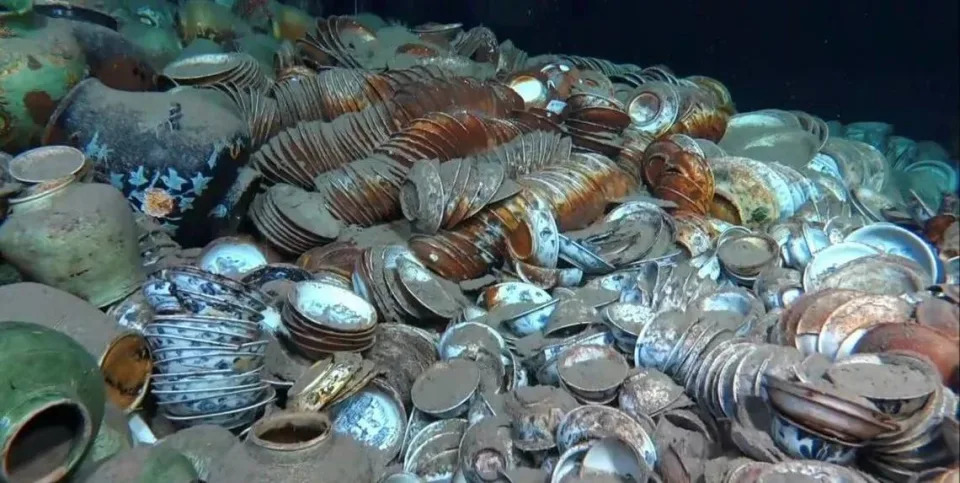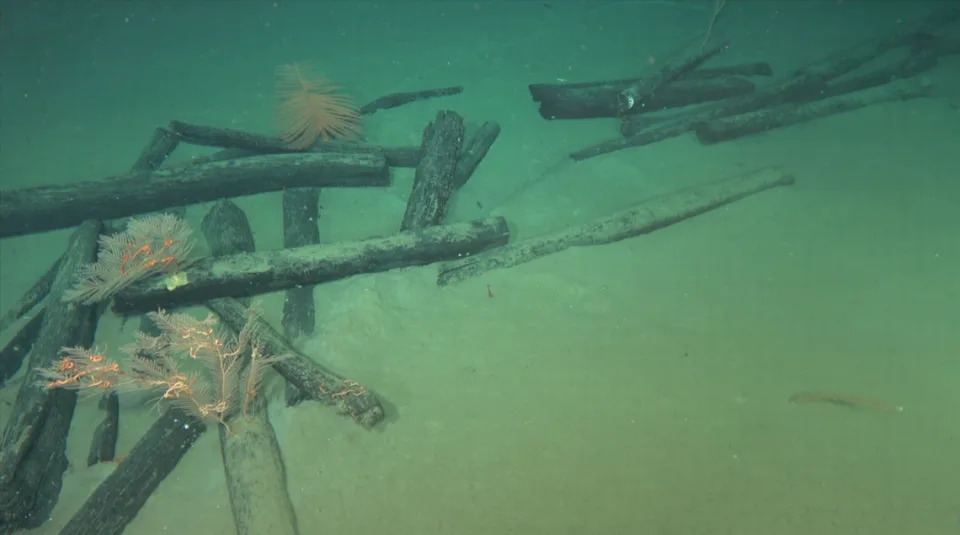Moira Ritter
Mon, May 22, 2023
Hundreds of years ago, the Ming dynasty relied on maritime trade to import key goods from foreign countries.
Now, the discovery of two Ming-era shipwrecks in the South China Sea is giving experts a better idea at what that trade looked like.
The shipwrecks were discovered about 1 mile below sea level on the northwest slope of the South China Sea, according to a May 22 news release from the State Administration of Cultural Heritage via the Institute of Archaeology at the Chinese Academy of Social Sciences.
Here’s what archaeologists have found in the shipwrecks so far.
A trove of porcelain
Experts determined that the first shipwreck dates to the Zhengde period of the Ming dynasty — which lasted from 1506 until 1521.
The wreck was overflowing with porcelain goods, including bowls, cups, plates and jars in various glaze colors, officials said.

Experts said they discovered more than 100,000 porcelain pieces.
More than 100,000 relics, mostly made of porcelain, have been uncovered so far, and experts said they are spread across hundreds of thousands of square feet.
Photos from the discovery show stacks of porcelain pottery. Although most of the pieces are covered with sand and dirt, ornate, colorful patterns are still visible beneath the grime.

Further explorations of the shipwrecks and artifacts will give experts more insight into ancient trade routes, officials said.
Stacks of logs and pottery
The second, older shipwreck dated to the Hongzhi period of the Ming dynasty — which lasted from 1488 until 1505.

Experts said they found the logs in neat stacks.
At this site, experts found stacks of logs and some pottery, according to officials. The persimmon logs were all a similar size and were neatly stacked.

The logs could have been intended for shipbuilding, according to officials.
Further research revealed that the logs could have been intended for shipbuilding, experts said. Chinese literature indicates that most products used to build ships were imported from foreign countries, according to the release.
A unique discovery
Archaeologists said their discovery marks the first time ancient ships sailing and returning have been found in the same area, indicating that they were likely on an important trade route.
Experts will continue researching and monitoring the wrecks, and they hope to learn more about ancient maritime trade routes and cultural exchanges, they said.
Google Translate and Baidu Translate were used to translate the news release from the State Administration of Cultural Heritage via the Institute of Archaeology at the Chinese Academy of Social Sciences.
No comments:
Post a Comment